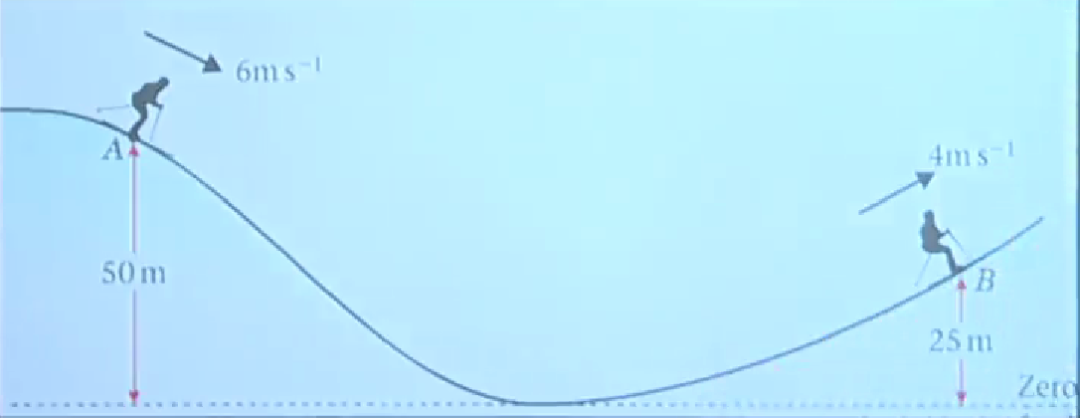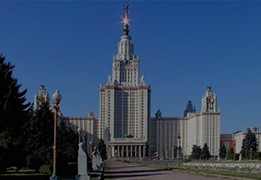Alevel数学 | 揭秘万能参数方程求导法则
临近5月份A-level大考,潘老师建议学生们梳理知识框架,从宏观到微观对知识点和易错点进行整理,今天我们就针对Work(功),Energy(能)和Power(功率)讲解区分。
首先从定义方面进行区分:
work做功 =force*distance 单位joules(J)
Kinetic energy动能(K.E.)=(1/2)mv2,
Potential energy势能(P.E.)=mgh
Work done=change in kinetic energy=(1/2)mv2-(1/2)mu2
Power is the rate of doing work, 单位watt(W),也就是1watt is 1 joule per second, Power在考题中经常以kilowatt(kW)形式出现,所以Power=F*V.
接下来我们看一道真题:
A skier passes point A on a ski-run moving downhill at 6m/s, after descending 50m vertically the run begins to asend. When the skier has ascended 25m to point B her speed is 4m/s. The skier and her skis have a combined mass of 55kg, The total distance she travels from A to B is 1400m. The non-gravitational resistances to motion are constant and have a total magnitude of 12N, Calculate the work done by the skier.

分析:
首先分析动能损失了多少,也就是初状态-末状态为正值,那么意味着动能在损失;然后计算势能的损失;然后计算动能和势能损失之和;克服阻力做功-能损失总和=滑雪人做功。
步骤:
Loss of K.E.=(1/2)mv2-(1/2)mu2=(1/2)*55*62-(1/2)*55*42=550
Loss of P.E.=mgh=55*9.8*(50-25)=13475
Total loss of energy=550+13475=14025
Work done against resistances=12*1400=16800
Work done by the skier=16800-14025=2775
以上就是功,能,功率典型题型,一方面同学们平时一定要注意积累题型,培养题感,多做题多对知识点做区块化总结就能慢慢达到看到题就能了解出题人的意图,希望今天的分享对大家能有所帮助,也欢迎同学们加入我们一起沟通和探讨。
 喜欢 [0]
喜欢 [0] 相关推荐

- "A加未来,引领A-Level生物新高度,携手共创未来
常见问题 2024-08-07

- “伦敦大学学院又搞!电子电气工程等专业不接受
常见问题 2024-04-23

- 近五年A-level成绩A的变化趋势!波峰与波谷的差别
常见问题 2024-04-23

- A-Level选课指南:如何选课以方便申请?
常见问题 2024-04-23









